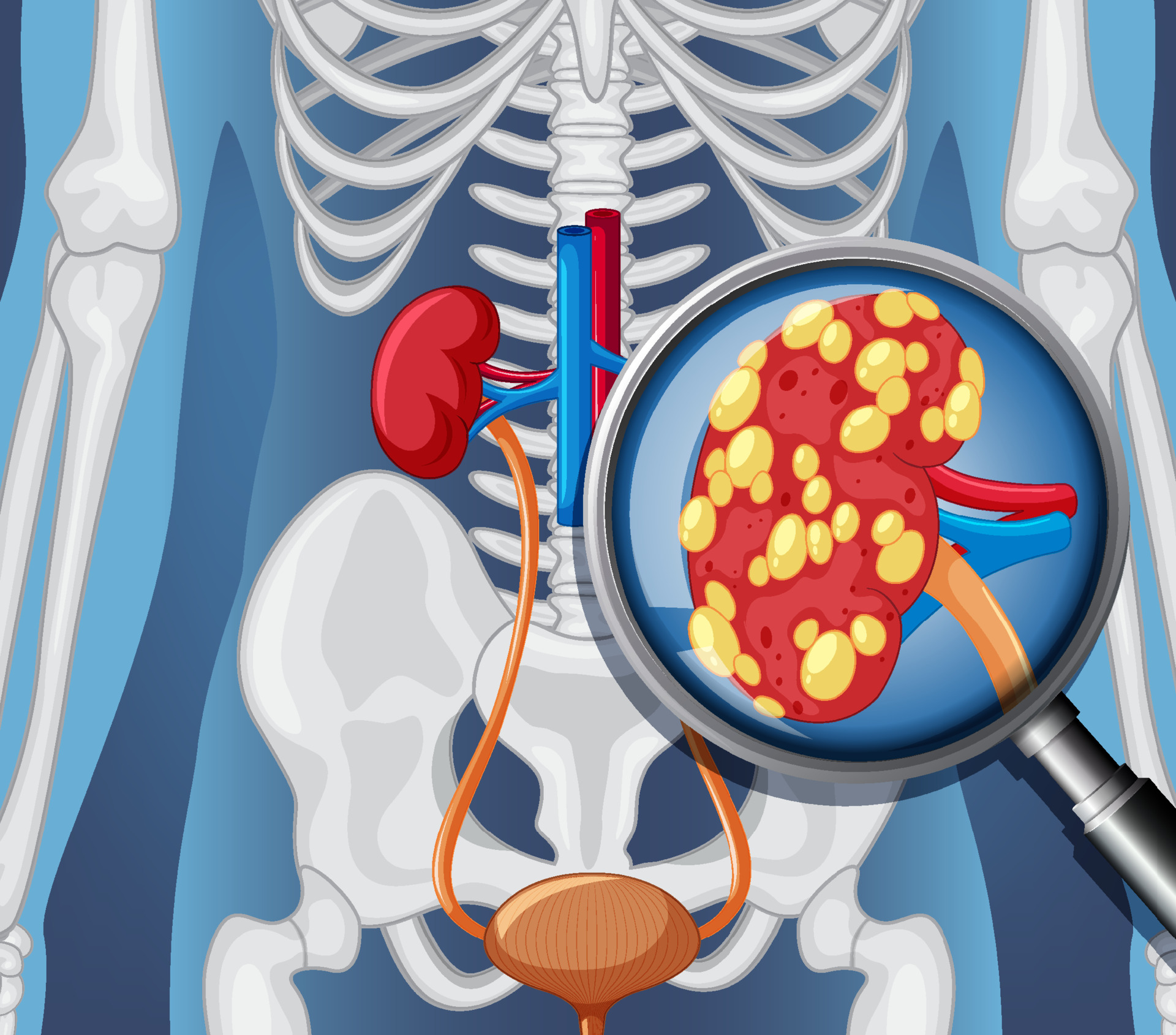Kidney Stones in Children
Kidney stones are hard mineral deposits that form in the kidneys. These stones can be small or large and may cause pain. While kidney stones are more common in adults, they can also occur in children.
Symptoms:
- Abdominal pain – Severe pain, usually in the lower abdomen or back.
- Blood in urine – Stones can cause injury while passing, leading to blood in urine.
- Vomiting – The child may feel nauseous due to the pain.
- Changes in urine – Urine may appear darker or foamy.
- Frequent urination – The child may try to urinate often but struggle to pass urine.


Causes:
- Dehydration – Inadequate water intake increases the risk of stone formation.
- Genetic factors – Some children are more prone to developing stones due to hereditary reasons.
- Diet – Excessive salt, sugar, or oxalate-rich foods can contribute to stone formation.
- Infections – Kidney infections may also lead to stone development.
Treatment:
- Drinking plenty of water – Helps in the natural passing of small stones.
- Pain relief medications – Doctors may prescribe pain relievers if needed.
- Medications – Some medicines help dissolve or break down kidney stones.
- Surgery – If the stone is large or causing severe pain, surgical removal may be necessary.


Prevention:
- Adequate hydration – Encourage children to drink enough water daily.
- Healthy diet – Reduce salt, sugar, and processed food intake.
- Regular checkups – If there’s a family history of kidney stones, periodic medical checkups are essential.
With timely and proper treatment, most children can recover and lead a normal life.
Kidney stones are hard mineral deposits that form in the kidneys. These stones can be small or large and may cause pain. While kidney stones are more common in adults, they can also occur in children.

Symptoms:
- Abdominal pain – Severe pain, usually in the lower abdomen or back.
- Blood in urine – Stones can cause injury while passing, leading to blood in urine.
- Vomiting – The child may feel nauseous due to the pain.
- Changes in urine – Urine may appear darker or foamy.
- Frequent urination – The child may try to urinate often but struggle to pass urine.

Causes:
- Dehydration – Inadequate water intake increases the risk of stone formation.
- Genetic factors – Some children are more prone to developing stones due to hereditary reasons.
- Diet – Excessive salt, sugar, or oxalate-rich foods can contribute to stone formation.
- Infections – Kidney infections may also lead to stone development.

Treatment:
- Drinking plenty of water – Helps in the natural passing of small stones.
- Pain relief medications – Doctors may prescribe pain relievers if needed.
- Medications – Some medicines help dissolve or break down kidney stones.
- Surgery – If the stone is large or causing severe pain, surgical removal may be necessary.

Prevention:
- Adequate hydration – Encourage children to drink enough water daily.
- Healthy diet – Reduce salt, sugar, and processed food intake.
- Regular checkups – If there’s a family history of kidney stones, periodic medical checkups are essential.
With timely and proper treatment, most children can recover and lead a normal life.
Get One Step Ahead Of Disease
Early detection and timely treatment can make all the difference. Take charge of your health today—schedule a consultation with our experts!
